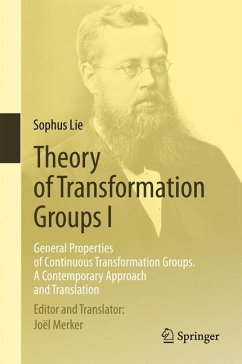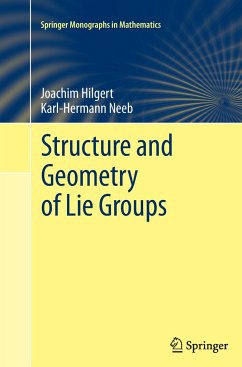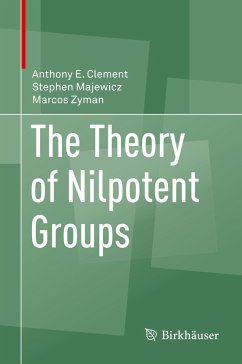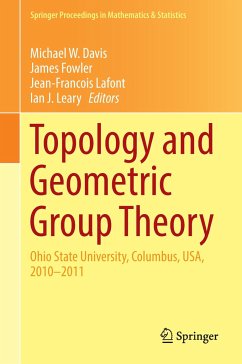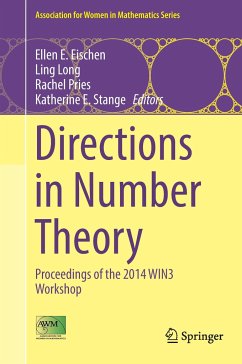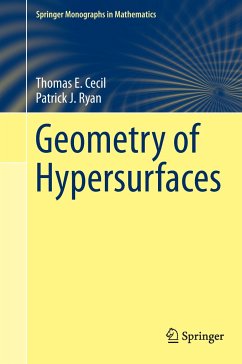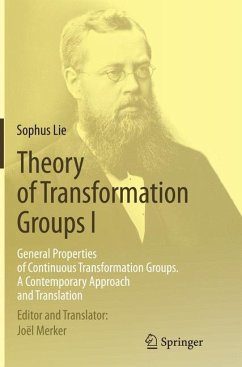
Theory of Transformation Groups I
General Properties of Continuous Transformation Groups. A Contemporary Approach and Translation
Herausgegeben: Merker, Joël;Übersetzung: Merker, Joël
Versandkostenfrei!
Versandfertig in 6-10 Tagen
98,99 €
inkl. MwSt.
Weitere Ausgaben:

PAYBACK Punkte
49 °P sammeln!
This modern translation of Sophus Lie's and Friedrich Engel's "Theorie der Transformationsgruppen I" will allow readers to discover the striking conceptual clarity and remarkably systematic organizational thought of the original German text. Volume I presents a comprehensive introduction to the theory and is mainly directed towards the generalization of ideas drawn from the study of examples. The major part of the present volume offers an extremely clear translation of the lucid original. The first four chapters provide not only a translation, but also a contemporary approach, which will help ...
This modern translation of Sophus Lie's and Friedrich Engel's "Theorie der Transformationsgruppen I" will allow readers to discover the striking conceptual clarity and remarkably systematic organizational thought of the original German text. Volume I presents a comprehensive introduction to the theory and is mainly directed towards the generalization of ideas drawn from the study of examples. The major part of the present volume offers an extremely clear translation of the lucid original. The first four chapters provide not only a translation, but also a contemporary approach, which will help present day readers to familiarize themselves with the concepts at the heart of the subject. The editor's main objective was to encourage a renewed interest in the detailed classification of Lie algebras in dimensions 1, 2 and 3, and to offer access to Sophus Lie's monumental Galois theory of continuous transformation groups, established at the end of the 19th Century. Lie groups are widespread in mathematics, playing a role in representation theory, algebraic geometry, Galois theory, the theory of partial differential equations and also in physics, for example in general relativity. This volume is of interest to researchers in Lie theory and exterior differential systems and also to historians of mathematics. The prerequisites are a basic knowledge of differential calculus, ordinary differential equations and differential geometry.





